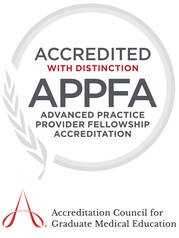Our Palliative Medicine team
Dartmouth Hitchcock Medical Center is a rural academic 507-bed tertiary care referral center attracting patients from Vermont, New Hampshire, Western Massachusetts, and parts of Maine. Our patient population is predominantly low socioeconomic status, Caucasian, non-religious, uninsured/underinsured, and have challenges with healthcare access.
Our palliative care team sees a wide variety of patients, such as those cared for by hematology-oncology (including hematological malignancy and transplant patients), hospital medicine, cardiology, neurology, surgical specialties, the intensive care unit and pediatrics. Our team consists of physicians, nurse practitioners, nurses, a clinical pharmacist lead, social workers, healing arts practitioners, volunteers, creative arts specialists, chaplains and administrative staff.
We have outpatient and inpatient services as well as a primary service at the Jack Byrne Center for Palliative & Hospice Care serving our community. Rotations include 2 local home hospice programs with Visiting Nurse and Hospice for New Hampshire and Vermont as well as Bayada, long-term care facility experiences at a few Dartmouth Health affiliated sites representing a socioeconomic range, pediatric palliative care at our own Dartmouth Health Children's, spirituality, palliative care social work, and nursing, and the local Veterans Affairs Medical Center at White River Junction. Our faculty are nationally recognized for communication education, substance use disorder in palliative care populations, narrative medicine, and healthcare delivery science research in end-of-life care.
Interprofessional Fellowship Model
Our program has been Accreditation Council for Graduate Medical Education (ACGME)-accredited since 2008, and in 2023 we earned Advanced Practice Provider Fellowship Accreditation (APPFA) with distinction status (the first program in New England to earn this award). We have grown over the years from 1 fellow to 5 fellows, 2 of which are APP fellows.
We are one of a few programs nationally offering an interprofessional training program for advance practice providers. The APP fellow(s) train side-by-side with physicians in the Hospice and Palliative Interprofessional Fellowship Program during this 1 year fully integrated, nationally recognized palliative care program.
Interprofessional training is an ideal, but real-world challenges impact its actualization. We are pioneering a side-by-side interprofessional training experience and leadership model between physicians and APPs in a way that is completely compliant with ACGME regulations, but recognizes clinicians from different professions as complementary and symbiotic. The result has been a fellowship class of skilled independent hospice and palliative medicine clinicians who can serve as agents of change for our vision of interprofessional equity in the care of seriously ill patients.
Read more about the Interprofessional Fellowship Model on page 6 of our Department of Medicine newsletter where it was celebrated as an innovative training model, and view our manuscript (PDF) from the Journal of Pain and Symptom Management.
Dartmouth Hitchcock Medical Center and Clinics Postgraduate Advanced Practice Provider Fellowship Program is accredited with distinction as an Advanced Practice Provider Fellowship Program by the American Nurses Credentialing Center’s Commission on Accreditation in Practice Transition Programs.
Learn more about the Advanced Practice Provider Fellowships Accreditation
Leadership and Preventative Medicine opportunity
Current physician fellows have the opportunity to train in Dartmouth Hitchcock Medical Center's unique Leadership Preventive Medicine Residency (LPMR), a fully-funded 2-year training program. LPMR graduates earn either an MPH or MS from The Dartmouth Institute for Health Policy and Clinical Practice (TDI). See an example of the work one of our previous fellows, Travis Austin, did as part of this program. After matching and starting in our 1-year HPM clinical fellowship, any fellow can apply to the LPMR program.
The track looks like this:
| Year 1 | Year 2 | Year 3 |
|---|---|---|
| Clinical Hospice and Palliative Medicine Training | Leadership Preventive Medicine Residency, Year 1 | Leadership Preventive Medicine Residency, Year 2 |
Mission
Our graduates will gain practical wisdom in discussing what matters most to patients and families to provide context-dependent and goal-aligned care and managing complex serious illness symptoms through team-based interprofessional care. In addition, they will be able to teach others how to add primary palliative care skills to their practice.
Aims
- Our fellows will practice communication frameworks and associated skills that build over the year in complexity while receiving bedside coaching from our faculty in a progressive independent way over the year. They will be mentored in how to provide bedside feedback to colleagues to spread skills.
- Our fellows will be taught and mentored by interprofessional faculty, experience interprofessional education (nurse practitioners and physicians trained side-by-side), and gain competency to leverage an interprofessional team for patient and family care.
- Our fellows will learn how to teach others primary palliative care skills through a dedicated workshop, structured mentoring to lead interprofessional and graduate medical education sessions, and debriefing.
- Read more about our team culture and daily work in Joy in Practice (PDF), a JAMA-published paper by Section Chief Kathryn Kirkland, MD.
- Visit the Palliative Care department website for information about our full team.
- Find regular communication training options for EARLY and LATE goals of care conversations on the Continuing Education website.
Impact and belonging
Our program strongly supports and promotes the Dartmouth Health Commitment to Belonging.
